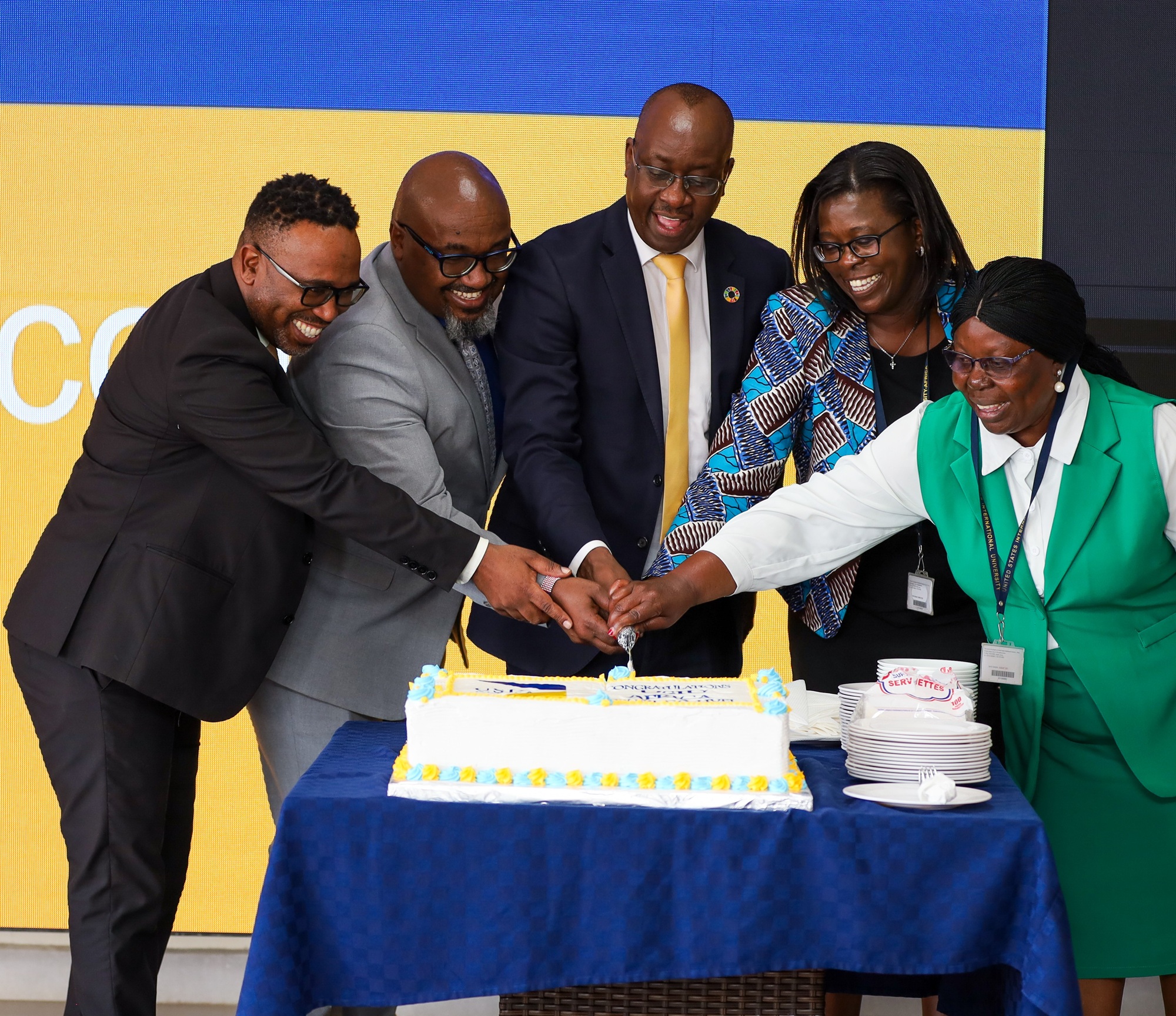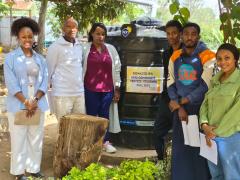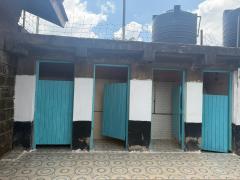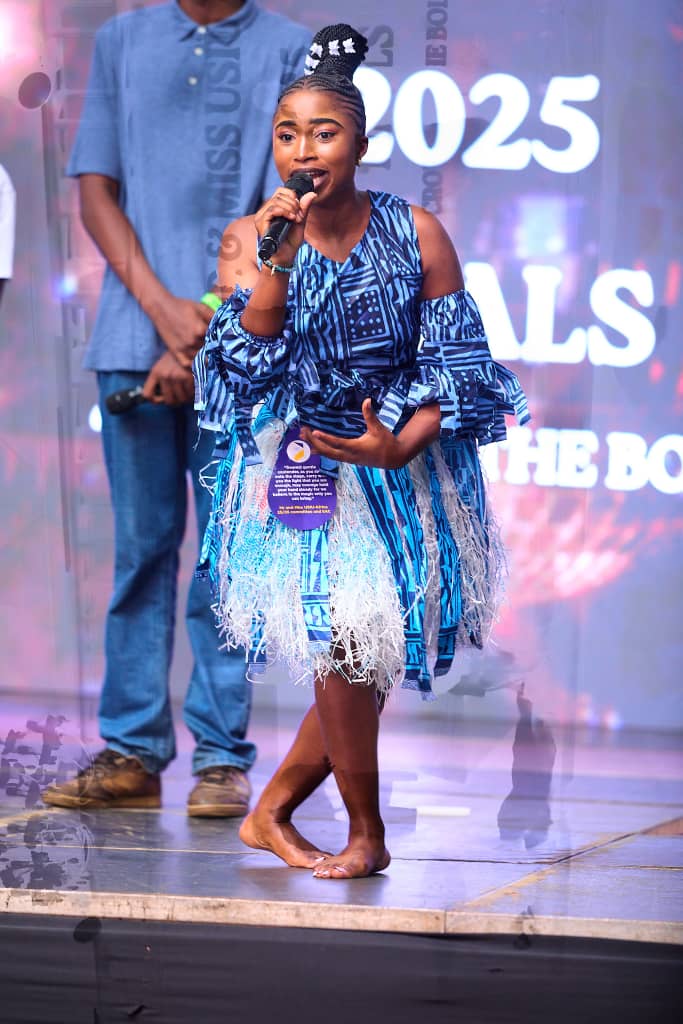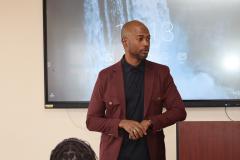VCs Weekly Higher Education Digest: May 6, 2019
For Colleges, Climate Change Means Making Tough Choices By Lee Gardner THE CHRONICLE OF HIGHER EDUCATION
Many colleges are finding they need to adapt their physical campuses. They must not only deal with higher temperatures and higher water, but also judge the level of risk facing their campuses and decide how best to prepare and plan their buildings and grounds to manage that risk decades into an uncertain future. And some must do so in communities where the words “climate change” can turn a potentially productive conversation into a political argument.
https://www.chronicle.com/interactives/20190503-campusspaces-01-fire?cid=wcontentgrid
KENYA: University enrolments drop as fewer qualify for entry By Wachira Kigotho UNIVERSITY WORLD NEWS
University enrolment in Kenya is declining, according to official figures, as more students fail to attain university entry grades and the university satellite campuses that fail to meet accreditation requirements are shuttered. According to the Kenya National Bureau of Statistics (KNBS), university enrolment in the 2018-19 academic year is expected to drop by about 2% to 513,182 students from 522,059 in the previous academic year.
https://www.universityworldnews.com/post.php?story=20190430095806978
KENYA: Why HE internationalization matters in Africa By Christabel Ligami UNIVERSITY WORLD NEWS
In recognition of its many benefits, Kenyan universities are actively working towards mainstreaming internationalization in their institutional strategies and education programs, according to education experts at the recent National Education Conference held at Aga Khan University in Nairobi…. several strategies are being implemented by universities across the country to achieve internationalization. They include faculty mobility programs and enrolment of students across borders.
https://www.universityworldnews.com/post.php?story=20190429134404900
KENYA: ‘Academic writers’ set to lose lucrative global market By Gilbert Nakweya UNIVERSITY WORLD NEWS
Recent measures taken by the United Kingdom government to stamp out the use of essay mills by its students come as a blow to thousands of Kenyan university students and graduates who rely on contract academic writing as a major source of income. Kenya is an international “hotspot” of individuals enabling contract cheating…. A hotspot is an international location with essay mill companies and individual writers keen to make money by helping other people to cheat.
https://www.universityworldnews.com/post.php?story=20190416085024565
Coming Soon to a Storefront by You: A Microcampus for Online Learners By Goldie Blumenstyk THE CHRONICLE OF HIGHER EDUCATION
As education moves online and colleges seek new ways of interacting with students, alumni, local communities, and other constituencies, institutions as diverse as the University of Phoenix, the University of Washington, and the Georgia Institute of Technology are responding with experimental, storefront-sized “microcampuses.” They’re also looking at unexpected models — such as Amazon’s bricks-and-mortar stores — for ideas to improve students’ experience.
https://www.chronicle.com/interactives/20150503-campusspaces-03-microcampus?cid=wcontentgrid
Using intellectual property to actualize universities’ potential By Maina Waruru UNIVERSITY WORLD NEWS
Four African universities are among five institutions that have been picked to participate in a continental intellectual property (IP) pilot project, aimed at helping public teaching and research organizations build capacity for developing and implementing institutional IP policy and strategy. The project is being implemented by global IP organization the World Intellectual Property Organization (WIPO) in collaboration with two continental bodies…
https://www.universityworldnews.com/post.php?story=20190430120618987
Public-Private Partnerships Take New Shapes By Scott Carlson THE CHRONICLE OF HIGHER EDUCATION
Higher-education institutions once handled almost all the functions necessary to enroll, educate, and graduate students. They built and maintained residence halls, sports complexes, and rec centers. They operated their own power plants, laid cable, and pushed steam through underground pipes. They ran kitchens to feed thousands of people, opened stores to sell toiletries, snacks, books, and memorabilia. Security, parking, marketing … the list of duties beyond the classroom goes on.
https://www.chronicle.com/article/Public-Private-Partnerships-/246240?cid=wcontentgrid
Young People Support Free College By Jeremy Bauer-Wolf INSIDE HIGHER EDUCATION
More than half of young adults, many of them in the traditional college age range, support plans to make public universities free, even if it costs billions of dollars, according to new data from Harvard University.
https://www.insidehighered.com/news/2019/05/03/poll-support-free-college-among-young-people
‘Free tuition’ is the opposite of progressive policymaking By Sandy Baum and Sarah Turner THE WASHINGTON POST
To make college affordable, should we create a scholarship program that gives the biggest financial rewards to students from rich families? Put that way, it’s hard to imagine such a program becoming politically popular, particularly on the left. Yet some of the “free college” plans touted by many Democratic presidential contenders would do just that. They generally would provide the largest benefits to those with the greatest capacity to pay.
Scholar takes students’ phones and makes them read for four hours By Anna McKie TIMES HIGHER EDUCATION
Forcing students to part with their phones and laptops and confining them to a classroom to read Nietzsche or Sartre for four hours doesn’t seem the best way to win over students at your new university. However, that’s exactly what David Peña-Guzmán, an assistant professor in humanities at San Francisco State University, has done – and it appears to have been a success.
Do Colleges Measure What They Value? By Doug Lederman INSIDE HIGHER EDUCATION
As Americans express growing doubts about the value of a postsecondary degree, colleges and universities have been under increasing pressure to show that students emerge with the knowledge and/or skills the institutions say they're trying to develop…. A new report, "Degree of Difference: What Do Learning Outcomes Say About Higher Education?" digs into data about "learning outcome statements" at dozens of colleges and universities to see what institutions say they want their students to be learning and how they measure whether that learning occurred.
https://www.insidehighered.com/news/2019/05/01/study-student-learning-outcomes
Universities could cater better for the smartest students By Nita Temmerman UNIVERSITY WORLD NEWS
In school, teachers differentiate how they teach and amend the curriculum according to their students’ knowledge and understanding. This involves matching students to learning goals and activities that are most appropriate to where their learning is. It is about meeting the individual needs of all students, including those who have learning difficulties and those who are outstanding…. So, what happens when students arrive at university?
https://www.universityworldnews.com/post.php?story=20190429083034912
How a Math Class Sparked Students’ Engagement in Their Community By Beth McMurtrie THE CHRONICLE OF HIGHER EDUCATION
What comes to mind when you hear the phrase “community-engaged scholarship”? Chances are it doesn’t involve logistic-regression or principal-components analysis. Yet those are skills students use in a statistics course at Swarthmore College to help local nonprofits figure out what their data are telling them about their work. It’s just one example of how professors are trying to design coursework for undergraduates that connects the classroom with the outside world.
https://www.chronicle.com/article/How-a-Math-Class-Sparked/246225?cid=wcontentlist
Early career productivity ‘linked to workplace, not training’ By Simon Baker TIMES HIGHER EDUCATION
An early career academic’s productivity is influenced by where they work rather than the university where they studied for their doctorate, research suggests. The findings come in a study that compares the productivity and citations gained by early career computer science scholars before and after they had been appointed to a role following their PhD.
https://www.timeshighereducation.com/news/early-career-productivity-linked-workplace-not-training
Leadership intelligence: do universities need ‘brave’ leaders? By Nick Mayo TIMES HIGHER EDUCATION
The pressures on university leaders are greater than ever – and “brave leadership”, which includes the need to show “vulnerability” and to be transparent, is being billed by some experts as the solution for leaders and their institutions…. “Brave leadership requires higher education leaders to refuse to engage in escalating and meaningless competition and to collaborate in finding creative solutions to some of the most pressing problems faced by higher education…”
https://www.timeshighereducation.com/news/leadership-intelligence-do-universities-need-brave-leaders
The push for open access is finally reaching a tipping point By Jeffrey MacKie-Mason TIMES HIGHER EDUCATION
Last week, Norway signed a landmark open access agreement with Elsevier, the world’s largest scientific publisher. It came barely a month after the country cancelled its subscription contract: a step that several other countries and organizations had already taken. In early 2017, a consortium of about 700 German universities and research organizations cut ties with Elsevier because the publisher would not agree to what would have been a transformative open access deal. In spring 2018, Swedish universities followed. And in December, Hungary and the powerful Max Planck Society took their stand.
https://www.timeshighereducation.com/opinion/push-open-access-finally-reaching-tipping-point
10 ways universities can change the story By John Gill TIMES HIGHER EDUCATION
Higher education in the UK has faced a blizzard of negative news over the past year or two. It has been exasperating to see universities’ incredible work and achievements eclipsed by endless stories about executive pay, supposed attempts to curtail free speech, and questions about value for money…. here are 10 ways that universities might consider changing the story:
https://www.timeshighereducation.com/blog/10-ways-universities-can-change-story
Medieval Scholars Joust With White Nationalists. And One Another By Jennifer Schuessler THE NEW YORK TIMES
Each May, some 3,000 people descend on Kalamazoo, Mich., for the International Congress on Medieval Studies, which brings together academics and enthusiasts for four days of scholarly panels, performances and after-hours mead drinking…. Since the 2016 presidential election, scholars have hotly debated the best way to counter the “weaponization” of the Middle Ages by a rising tide of far-right extremists…. And hanging over it all is an even more fraught question: Does medieval studies have a white supremacy problem of its own?
Why are so many afraid to confront Britain’s historical links with the slave trade? By David Olusoga THE GUARDIAN
Seldom have so many people taken to print and the airwaves to make the case for academic incuriosity. Rarely has the search for new knowledge, undertaken by a university of world renown, been so vocally condemned. That is what happened when Cambridge University announced a new academic research project to determine the extent to which the university (although not its wealthy colleges) “contributed to, benefited from or challenged” slavery and the slave trade.
The privacy paradox: why do people keep using tech firms that abuse their data? By John Naughton THE GUARDIAN
A dark shadow looms over our networked world. It’s called the “privacy paradox”. The main commercial engine of this world involves erosion of, and intrusions upon, our privacy. Whenever researchers, opinion pollsters and other busybodies ask people if they value their privacy, they invariably respond with a resounding “yes”. The paradox arises from the fact that they nevertheless continue to use the services that undermine their beloved privacy.
Engage with climate deniers and anti-vaxxers, says science chief By Peter Gluckman TIMES HIGHER EDUCATION
“Dr Google” is a bigger threat to evidence-based policymaking than the anti-science polemics of populist politicians, according to the incoming head of the International Science Council…. “Everybody now has access to information. Whether it’s reliable or unreliable is beside the point,” he told Times Higher Education. “That’s led many to think they no longer need experts. There’s a hubris [in] that people think ‘Mr Google’ or ‘Mr Wikipedia’ are enough. That’s not the case. Data needs analysis and interpretation.”
https://www.timeshighereducation.com/news/engage-climate-deniers-and-anti-vaxxers-says-science-chief
The state of the discipline: English studies Lenard Davis TIMES HIGHER EDUCATION
English studies is arguably the archetypal humanities subject in the anglophone world, steeping its students in the English language’s central cultural landmarks and preparing them for all manner of interesting careers in the arts, media and civil society. Yet, in an era of increasing fees and instrumentalism, concern about how much the subject really contributes to employability has combined with growing distaste for long, difficult texts written by dead white authors to push down enrolments and endanger departments.
https://www.timeshighereducation.com/features/state-discipline-english-studies
Why the world is due a revolution in economics education By Joris Tieleman UNIVERSITY WORLD NEWS
Economic thinking governs much of our world. But the discipline’s teaching is stuck in the past. Centered on antiquated 19th century models built on Newtonian physics, economics treats humans as atomic particles, rather than as social beings. While academic research often manages to transcend this simplicity, undergraduate education does not – and the influence of these simplified ideas is carried by graduates as they go on to work in politics, media, business and the civil service.
https://www.universityworldnews.com/post.php?story=20190430112840623
A Moral Stain on the Profession By Daniel Bessner and Michael Brenes THE CHRONICLE OF HIGHER EDUCATION
Regardless of whether they study ancient Byzantium, colonial Latin America, or the modern United States, most historians can agree on one thing: The academic job market is abysmal. To even call it a "market" is an exaggeration; it’s more like a slaughterhouse. Since the Great Recession of 2008, there have been far, far more historians than jobs…. To be a historian today is, for most people, to be jobless, suffused with anxiety that one has wasted years of one’s life training for a position that will never materialize.
https://www.chronicle.com/article/A-Moral-Stain-on-the/246197

